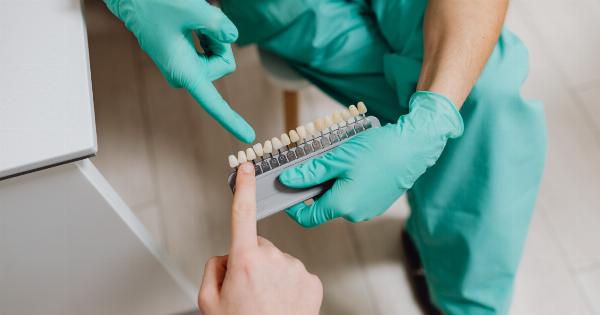Dental hygiene is important not only for maintaining a healthy mouth, but also for preventing a wide range of diseases. Good oral health has been associated with better overall health, so it’s important to take care of your teeth and gums.
This dental hygiene survival handbook provides tips and tricks for a brighter smile and a healthier mouth.
1. Brush Properly
Brushing your teeth is the first step to good oral hygiene. You should brush your teeth at least twice a day, using a soft-bristled brush and fluoride toothpaste.
Make sure to brush all the surfaces of your teeth and your tongue, as well as the inside of your cheeks and the roof of your mouth.
2. Floss Daily
Flossing is an essential part of good dental hygiene, as it removes food particles and plaque from between your teeth and gums.
Use about 18 inches of floss, wrap it around your fingers and slide it gently between your teeth, making sure to curve the floss around each tooth and slide it under the gumline.
3. Use Mouthwash Regularly
Mouthwash can help kill germs that cause bad breath, prevent tooth decay and reduce plaque buildup. Look for a mouthwash containing fluoride and antibacterial ingredients, and use it after brushing and flossing for best results.
4. Avoid Sugary and Acidic Foods
Sugar and acid are the main culprits behind tooth decay and cavities, so it’s important to limit your intake of sugary and acidic foods and drinks. This includes soda, candy, sports drinks, energy drinks, and citrus fruits.
If you do eat or drink something sugary or acidic, make sure to brush your teeth afterwards.
5. Chew Sugar-Free Gum
Chewing sugar-free gum after a meal can help stimulate the production of saliva, which helps neutralize acid and wash away food particles. Look for gum containing xylitol, which has been shown to reduce plaque and prevent cavities.
6. Visit the Dentist Regularly
Regular dental checkups and cleanings are key to maintaining good oral health. Your dentist can detect and treat dental problems before they become more serious, as well as clean your teeth to remove plaque and tartar buildup.
Aim to visit your dentist at least once every six months.
7. Invest in a Good Toothbrush
The right toothbrush can make all the difference in your dental hygiene routine. Look for a brush with soft bristles and a comfortable grip, and replace it every three to four months or when the bristles begin to fray.
An electric toothbrush can be more effective at removing plaque than a manual toothbrush.
8. Don’t Ignore Dental Problems
If you experience any dental pain, swelling or bleeding, don’t ignore it. These symptoms can indicate a dental problem that needs immediate attention. Contact your dentist as soon as possible to schedule an appointment.
9. Watch Your Diet
Your diet can have a big impact on your dental health. Eating a diet rich in vitamins and minerals can help keep your teeth and gums healthy, while avoiding sugary and acidic foods can help prevent tooth decay.
Make sure to drink plenty of water to stay hydrated and keep your mouth moist.
10. Stay Consistent
Consistency is key when it comes to good dental hygiene. Make brushing, flossing and using mouthwash part of your daily routine, and stick to your regular dental checkups and cleanings.
With a little effort, you can achieve a brighter smile and a healthier mouth.




























